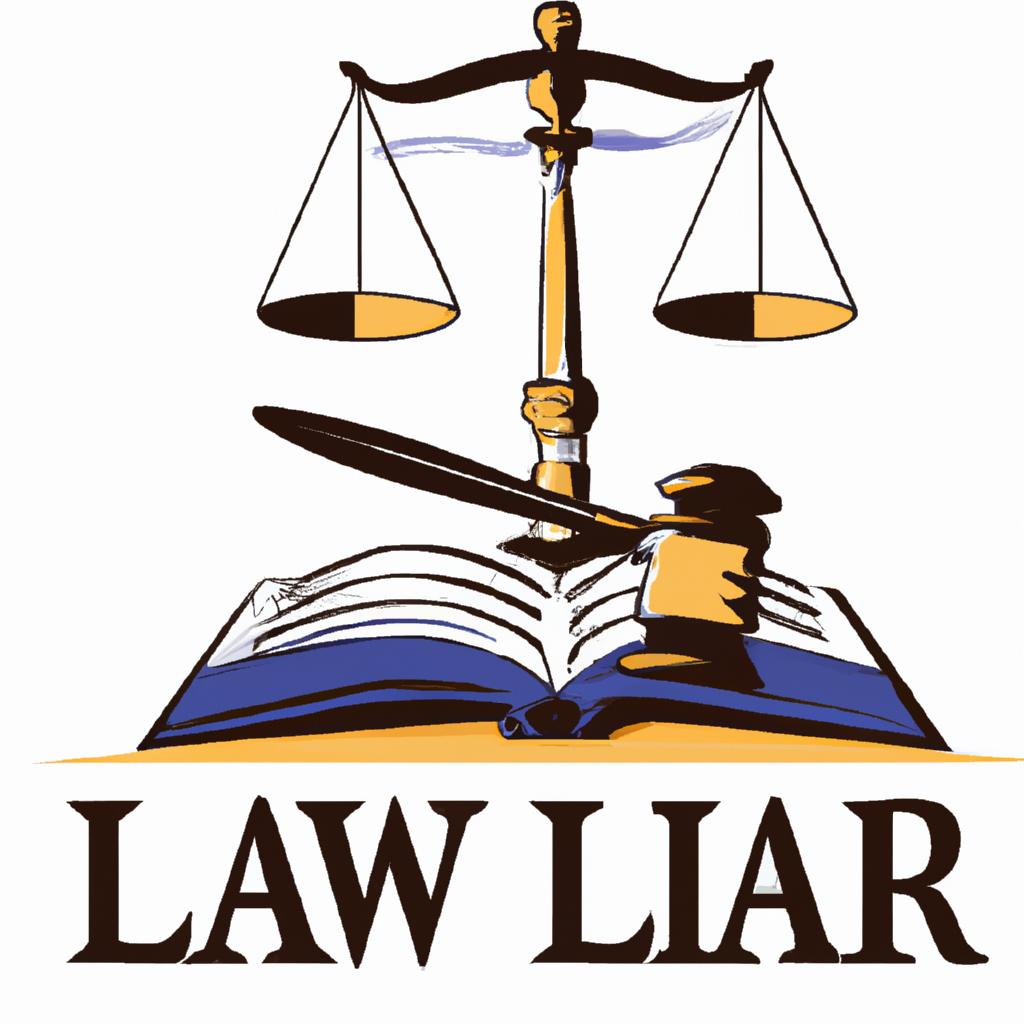Navigating the complexities of probate can be a daunting task for many individuals. As an experienced lawyer in the field of estate planning, probate, elder law, Wills, and trusts, it is crucial to understand the potential tax implications of probate legal fees. In this article, we will explore whether probate legal fees are tax deductible and provide valuable insights for our readers. Join us as we delve into the intricate world of probate and shed light on this important topic.
Understanding the Tax Implications of Probate Legal Fees
When it comes to probate legal fees, many individuals often wonder whether they are tax deductible. The answer to this question is not as straightforward as one might think. In general, probate legal fees are not typically tax deductible. However, there are certain situations where these fees may be eligible for a tax deduction. It is important to understand the tax implications of probate legal fees in order to properly navigate this complex area of tax law.
One circumstance where probate legal fees may be tax deductible is if they are incurred in the process of administering an estate. These fees can be included as part of the estate’s administrative expenses, which are typically deductible from the estate’s gross income. Additionally, if the estate generates income during the probate process, any legal fees incurred in earning that income may also be deductible. It is important to consult with a tax professional or estate planning attorney to determine the specific tax implications of probate legal fees in your individual situation.

Exploring the Criteria for Tax Deductibility of Probate Legal Fees
When it comes to the tax deductibility of probate legal fees, there are certain criteria that must be met in order for these expenses to be eligible for deduction. Understanding these criteria is essential for individuals navigating the probate process and seeking to offset some of the costs associated with legal representation. Here are some key factors to consider:
- Incurred for the Production or Collection of Income: Probate legal fees are generally tax deductible if they are incurred in the production or collection of taxable income. This may include fees related to the settlement of an estate, the distribution of assets, or the resolution of disputes among beneficiaries.
- Reasonable and Necessary: In order for probate legal fees to be tax deductible, they must be considered reasonable and necessary. This means that the fees must be appropriate for the services rendered and directly related to the administration of the estate.

Maximizing Tax Savings Through Proper Documentation and Reporting
When it comes to , one question that often arises is whether probate legal fees are tax deductible. The answer to this question depends on the specific circumstances surrounding the legal fees and the purpose for which they were incurred.
Generally speaking, probate legal fees can be tax deductible if they are incurred as part of the administration of an estate and are necessary for the collection of assets, payment of debts, and distribution of property to beneficiaries. However, it is important to keep detailed records and documentation of these legal fees in order to support any tax deductions claimed. Working with a knowledgeable estate planning attorney can help ensure that you are maximizing your tax savings while complying with all relevant laws and regulations.

Consulting with Experienced Estate Planning Attorneys for Personalized Advice
When considering the tax implications of probate legal fees, it is important to consult with experienced estate planning attorneys for personalized advice. While probate legal fees themselves are generally not tax deductible, there are certain circumstances where they may be considered eligible deductions. It is crucial to seek guidance from a professional who understands the complexities of tax law and can provide tailored recommendations based on your specific situation.
During a consultation with our team at Morgan Legal Group, we can assess your individual circumstances and provide clarity on whether probate legal fees are tax deductible in your case. We will work closely with you to develop a personalized plan that addresses your estate planning needs while also considering any potential tax implications. Our goal is to help you navigate the probate process with confidence, knowing that you have received expert guidance and support every step of the way.
Q&A
Q: Can probate legal fees be deducted on my taxes?
A: Probate legal fees are generally not tax deductible as personal expenses, according to IRS guidelines.
Q: Are there any circumstances in which probate legal fees can be tax deductible?
A: In some cases, probate legal fees may be deductible if they are incurred in the process of managing taxable income or assets. It is best to consult with a tax professional for specific advice.
Q: What if I hire an attorney to help with estate planning instead of probate?
A: Legal fees for estate planning are not typically deductible unless they are directly related to the management of taxable income or assets.
Q: What about fees for resolving disputes during the probate process?
A: Legal fees for resolving disputes during probate may be deductible if they are incurred in the process of managing taxable income or assets.
Q: Is there a limit to the amount of probate legal fees that can be deducted?
A: There is no specific limit to the amount of probate legal fees that can be deducted, but they must meet certain criteria to be eligible for deduction.
Q: What should I do if I am unsure about whether I can deduct probate legal fees on my taxes?
A: It is always best to consult with a tax professional for personalized advice on your specific situation.
To Wrap It Up
In conclusion, navigating the complexities of probate legal fees and tax deductions can be a daunting task. It is always advisable to consult with a qualified tax professional or attorney to ensure that you are maximizing your potential deductions while remaining compliant with the law. Remember, every situation is unique, and seeking professional guidance can help you make informed decisions that benefit you and your loved ones in the long run. Thank you for reading!
 Are Probate Legal Fees Tax Deductible?
Are Probate Legal Fees Tax Deductible?
Probate is the legal process in which a deceased individual’s assets are distributed to their beneficiaries according to their will or state laws. It can be a complex and time-consuming process, often involving the assistance of a probate lawyer. Unfortunately, this also means incurring additional expenses such as probate legal fees. As a result, many people wonder if these fees are tax-deductible. In this article, we will explore the concept of tax-deductible probate legal fees and provide answers to commonly asked questions.
What Are Probate Legal Fees?
Probate legal fees are the costs associated with the probate process, typically paid to the executor of the estate or a probate attorney. These fees can vary greatly depending on the complexity of the estate, the state’s laws, and the attorney’s rates. In general, the fees cover the legal services required for managing and distributing the deceased’s assets, including preparing and filing necessary court documents, handling creditor claims, and resolving any disputes between beneficiaries.
Are These Fees Tax-Deductible?
The short answer is yes; probate legal fees are tax-deductible. However, there are specific criteria that must be met for the fees to be tax-deductible. The Internal Revenue Service (IRS) allows for the deduction of “expense of administering property” on an estate’s final income tax return. This includes probate legal fees, as they are considered necessary expenses for settling the estate.
Which Expenses Are Tax-Deductible?
As previously mentioned, not all probate expenses are tax-deductible. To be tax-deductible, the expenses must fall under the category of “expense of administering property.” This includes several costs associated with probate, such as:
1. Legal and executor fees.
2. Court filing fees.
3. Appraiser fees.
4. Accounting fees.
5. Costs related to the property’s maintenance and preservation.
6. Costs to secure and insure the property.
It is crucial to note that these expenses must be incurred during the probate process and deemed necessary for administering the deceased’s estate. Expenses incurred after the distribution of assets are typically not tax-deductible. Additionally, any expenses that are paid or reimbursed by the estate or other sources, such as life insurance proceeds, are not eligible for tax deductions.
How to Claim Tax Deductions for Probate Legal Fees
To claim tax deductions for probate legal fees, the executor of the estate must file Form 706, also known as the Estate Tax Return, with the IRS. This form is used to report the deceased’s estate’s value and calculate any estate taxes due. Within this form, the executor can also claim deductions for probate expenses, including legal fees.
When completing Form 706, the executor must provide detailed information about each expense incurred and the beneficiary responsible for paying the expense. The beneficiary must also provide documentation, such as receipts or invoices, to support the expenses claimed. It is essential to keep detailed and accurate records to avoid any issues with the IRS.
Benefits and Practical Tips
The main benefit of claiming tax deductions for probate legal fees is reducing the estate’s overall tax liability. Since these fees can be costly, deducting them from the estate’s taxable income can result in significant savings for the beneficiaries. It is also essential to keep detailed records of all probate expenses to ensure accurate and proper deductions.
First-Hand Experience
John’s grandmother recently passed away, and as the executor of her estate, he was responsible for managing the probate process. He hired a probate lawyer to assist with the legal aspects, incurring a significant sum in legal fees. When it came time to file the estate tax return, the lawyer advised John to claim tax deductions for the legal fees paid. This resulted in a significant reduction of the estate’s tax liability, providing more inheritance for John and the other beneficiaries.
In Summary
Probate legal fees are tax-deductible as “expense of administering property” on an estate’s final tax return. However, not all probate expenses are eligible for tax deductions, and certain criteria must be met for the expenses to be deductible. It is crucial to consult with a probate attorney and keep detailed records to ensure accurate and proper deductions. As with any tax-related matter, it is always best to seek the guidance of a tax professional to ensure all necessary deductions are claimed accurately.


